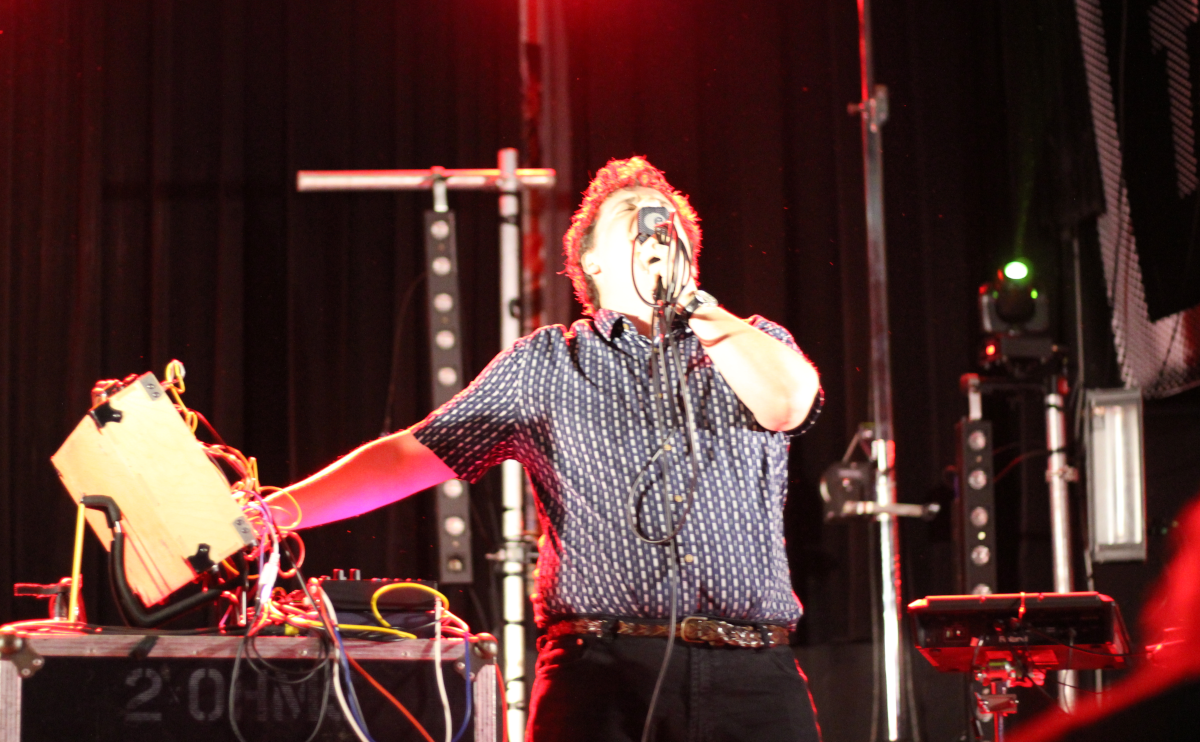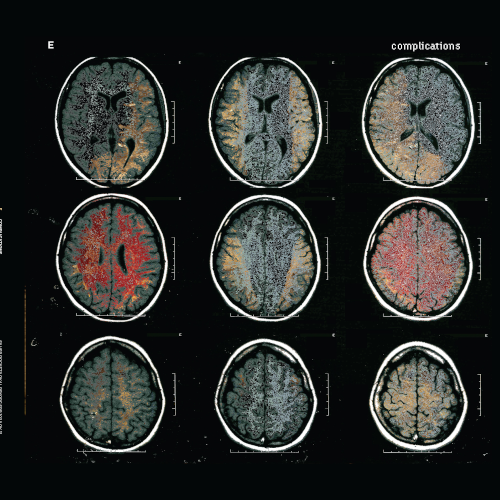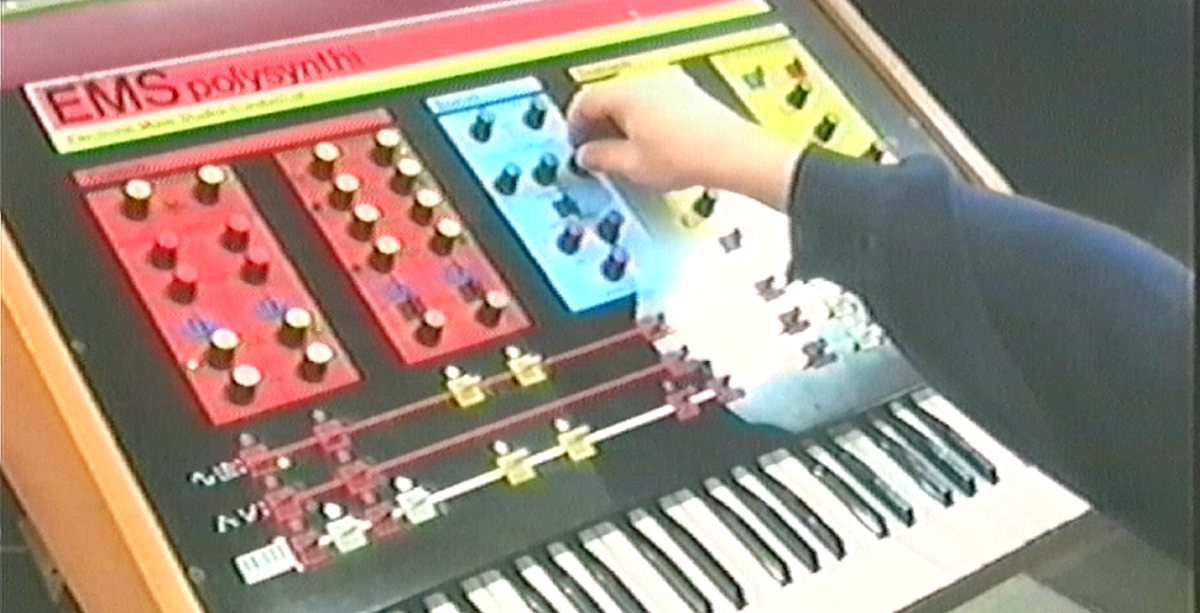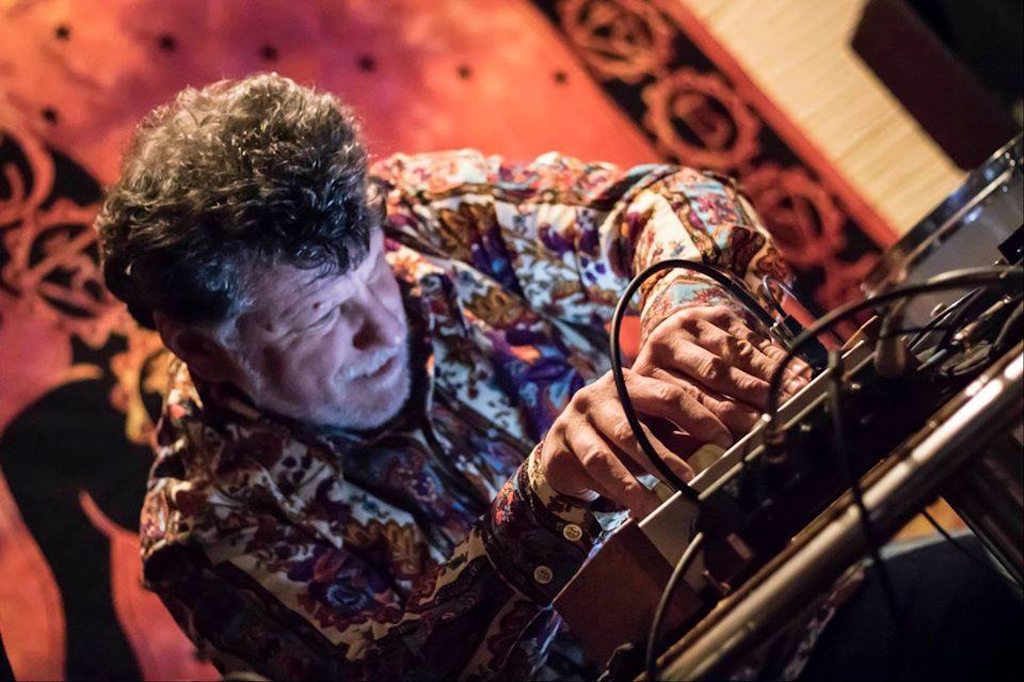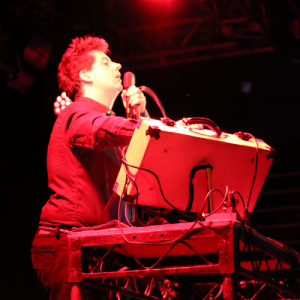 Electronic musician, artist, producer, engineer as well as module designer and maker for Future Sound Systems, Bristol-based Finlay Shakespeare‘s session for Philippe Petit‘s Modulisme project shows off his grasp of the classic British sound of independent modular-adjacent pop music from its heady early years. His influences also are also steeped in experimental electronic music, which led him to create the Throbbing Gristle-inspired Gristelizer eurorack module in association with its original designer Roy Gwinn and Chris Carter.
Electronic musician, artist, producer, engineer as well as module designer and maker for Future Sound Systems, Bristol-based Finlay Shakespeare‘s session for Philippe Petit‘s Modulisme project shows off his grasp of the classic British sound of independent modular-adjacent pop music from its heady early years. His influences also are also steeped in experimental electronic music, which led him to create the Throbbing Gristle-inspired Gristelizer eurorack module in association with its original designer Roy Gwinn and Chris Carter.
Discussing his Modulisme session with Freq, Finlay gives an insight into how he has developed his singular approach to modular synthesis both on record and onstage.
When did you first become aware of modular synthesis as a particular way of making music, whether as part of electronic music in general or more specifically as its own particular format, and what did you think of it at the time?
My first exposure to modular synthesizers was through the work of artists such as Isao Tomita, Wendy Carlos and Jean-Michel Jarre. I managed to buy a lot of the Tomita records second-hand as a kid and, whilst having no idea exactly how these massive modular systems actually worked, I remember being fascinated by the photos of the Moog system(s) and equipment lists on the back of those LP covers. Of course, the sounds on all those records are absolutely incredible – a lot of it still blows my mind to this day.My first actual interaction with a modular system will have been on a visit to EMIS in Bristol, where a Doepfer system took pride of place in the store.
What was your first module or system?
My first modules were cobbled together in the 5U MOTM format, just before the eurorack “explosion” happened. I was building bits and pieces whilst undertaking an electronics GCSE, and modular seemed to be the way to go from what I was reading on the internet.
How long did it take for you to become accustomed to patching your own synthesizer together out of its component parts?
Not too long once I had hardware, but only because I had been playing around with software systems for a good few years beforehand. I remember SynthEdit being pretty vital in my experience of how different synthesis components “fit” together, what various types of modulation sounded like, etc.Do you prefer single-maker systems (for example, Buchla, Make Noise, Erica Synths, Roland, etc) or making your own modular synthesizer out of individual components form whatever manufacturer that match your needs.
I’m not a purist at all, so often even different modular formats end up patched together via whatever interfacing is necessary in the studio. I have preferred brands I guess, but even within those I won’t necessarily collect all of their modules. I tend to only build or purchase what I feel the studio or live rig needs.
East Coast, West Coast or No-Coast (as Make Noise put it)? Or is it all irrelevant to how you approach synthesis?
Totally irrelevant. I understand the two different schools of thought and why they (co-)exist, but I think siding with East or West Coast nowadays is completely futile. There are plenty of things I’ve done with either Moog or Buchla systems which could easily pass off as the other.Do you tend to use pure modular systems, or do you bring in outside effect and devices when playing or recording?
I try to utilise the whole studio as a modular system, so outboard devices and effects pedals get used a lot, but almost as modules in their own right. Fitting a patchbay to the studio really opened things up – the days’ worth of wiring were well and truly worth it.
Do you find that you record straight with no overdubbing, or do you end up multi-tracking and editing tracks in post-production?
It typically depends on the project or end goal for the recording. For the Modulisme session, and even the Housediet releases, everything got tracked live with no overdubbing, very little editing, very minimal post-production, etc, mainly because I was chasing that “live” feeling, almost akin to a Peel Session or similar. However, for the albums I’ve released on Editions Mego, every element was treated individually, with tracks often built up channel-by-channel. It’s important to inspect every component of a track to ensure that each part really needs to be there.
Do you pre-patch your system when playing live, or do you tend to improvise on the spot?
My live rig always exists pre-patched, but mainly because the modular element works as a collection of synthesizer voices and vocal treatments. I’ll perform a little bit of patching on the fly, but it’s almost always to achieve very specific effects.Which module could you not do without, or which module do you you use the most in every patch?
Perhaps sidestepping the question somewhat, but I always need a good filter.What do you think that can only be achieved by modular synthesis that other forms of electronic music cannot or makes harder to do?
Modular synthesis is fantastic for systems music, particularly works that are algorithmically driven. That was one of the things that first pulled me towards modular synthesis – being able to develop simple or complex musical systems which would play themselves.
Have you used various forms of software modular (eg Reaktor Blocks, Softube Modular, VCVRack) or digital hardware with modular software editors (eg Nord Modular, Axoloti, Organelle), and if so what do you think of them?
Yes – Reaktor gets a lot of use here, as well as my Nord G2X Modular. The ability to copy and paste modules (near) endlessly is fantastic, particularly for controlling hardware elsewhere. In fact, a lot of the release I recorded for Superpang was exactly that – Reaktor controlling analogue synthesizers and tweaking both computer and analogue systems as the recording progressed.What module or system you wish you had?
I’d love to have a go on a well-maintained and working Buchla 200e system, particularly to see how the preset management can open up various avenues. Perhaps slightly outside of the modular world though are the Korg PS synths – I’d really love to try one of those things out.Have you ever built a DIY module, or would you consider doing so?
Yes, absolutely – my day-job is designing and building modules for Future Sound Systems.
Which modular artist has influenced you the most in your own music?
Talking strictly modular, it’s likely to be Isao Tomita, simply because his work has been part of my life since growing up, and his sound design still amazes me. However, even groups such as The Human League were using modular systems (ie Roland System 100) to make electronic pop music back in the late 1970s. Modular and “pop” can go hand in hand, and have done for a long time.Can you hear the sound of individual modules when listening to music since you’ve been part of the modular world — how has it affected (or not) the way that you listen to music?
Yes! It’s very easy to spot Future Sound Systems modules in other people’s work, simply because I spend so much time at work testing them. Our equipment can appear in somewhat unlikely places – surprises are always more than welcome. I think making music has certainly changed the way I listen to music though, and the more I learn about making, the more my listening process changes.
What have you been working on lately, and do you have any upcoming releases or performances?
Recently, I’ve been putting more effort into a few new things for Future Sound Systems, but there is currently a third album “proper” making its way through the workings of vinyl pressing, etc. My next performance will be as part of a tribute to Peter Rehberg and Editions Mego, taking place at Café OTO in London.Can you outline how you patched and performed your Modulisme session?
I nicknamed the Modulisme session “Performer” as the majority of the tracks were driven from the Westlicht Performer sequencer module. I used my “Vittsjo” rig of ARP 2600 clones, Buchla, Serge and eurorack equipment to do the rest – you can see the rig here:
Who would your dream collaborator be for a Modulisme session or otherwise?
I’m unsure, but I’m certainly very open to collaboration! The more unlikely the better I think. Anyone interested in using their voice in unusual ways always appeals to me – they tend to be far braver than I am!
*
